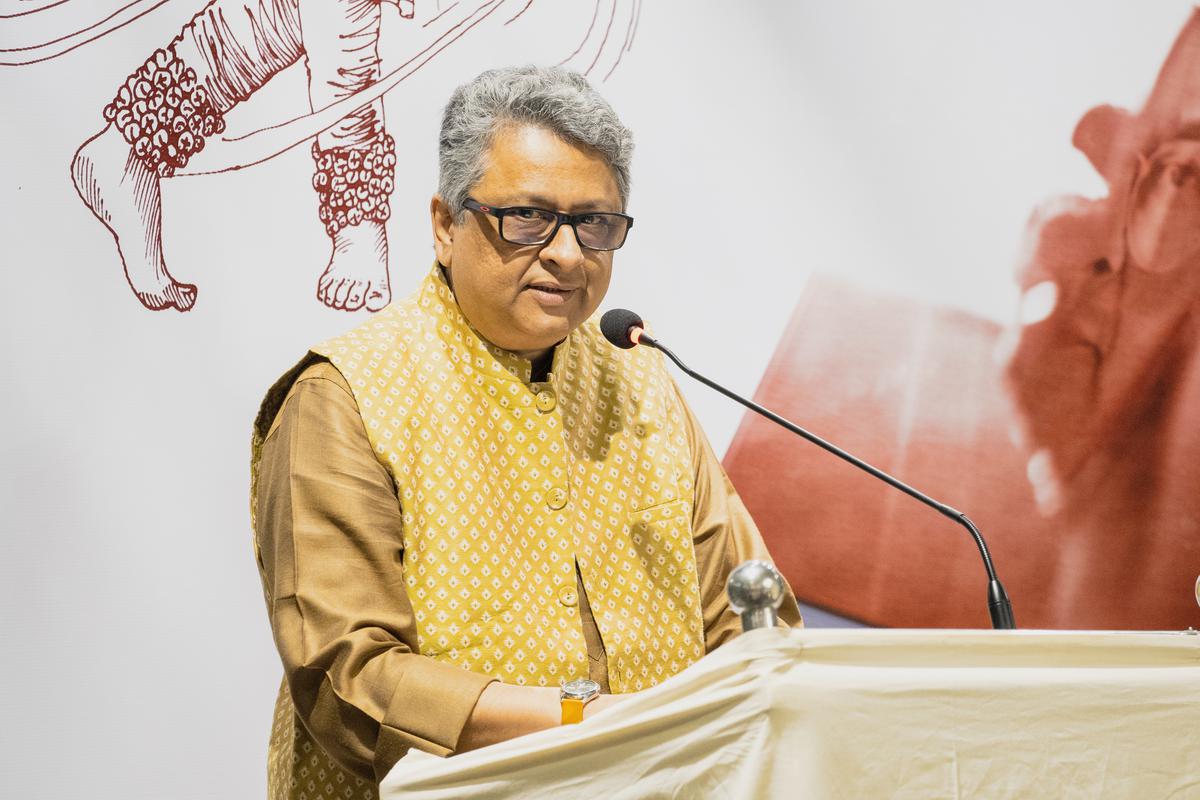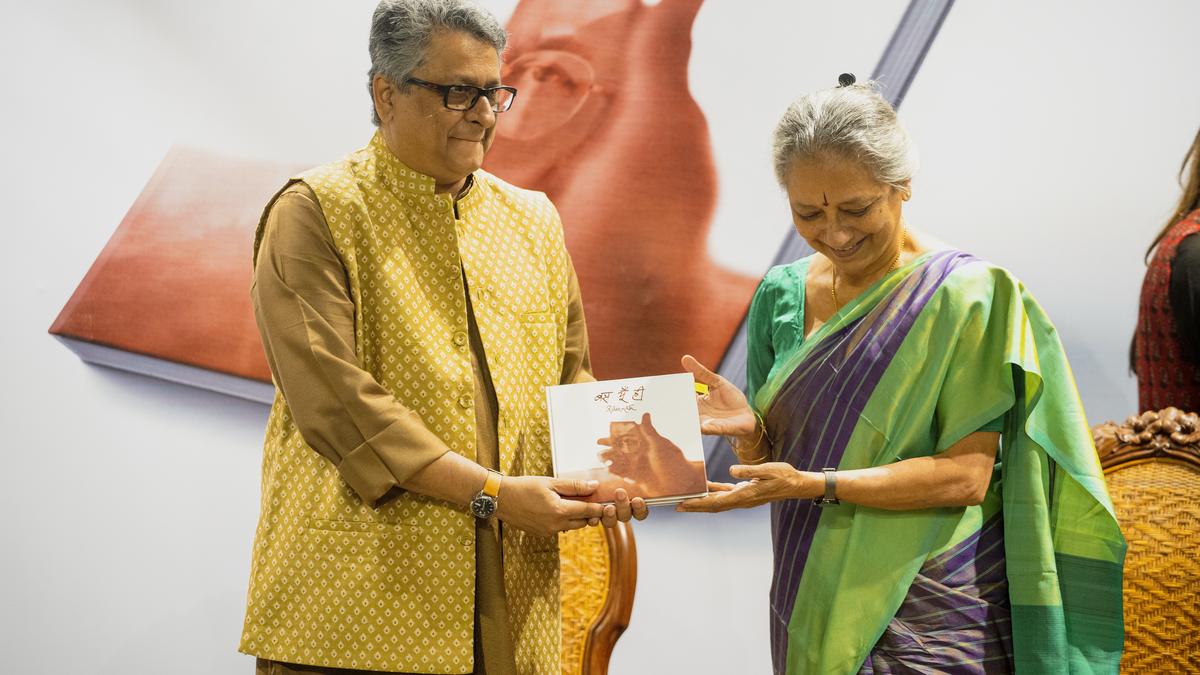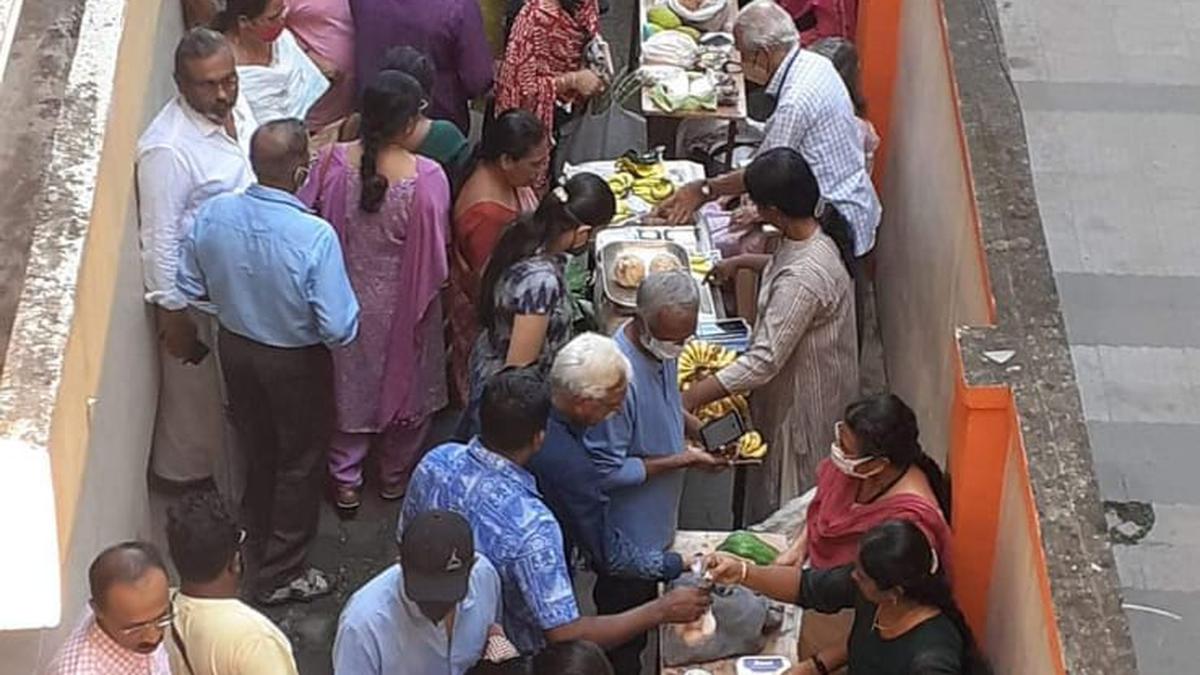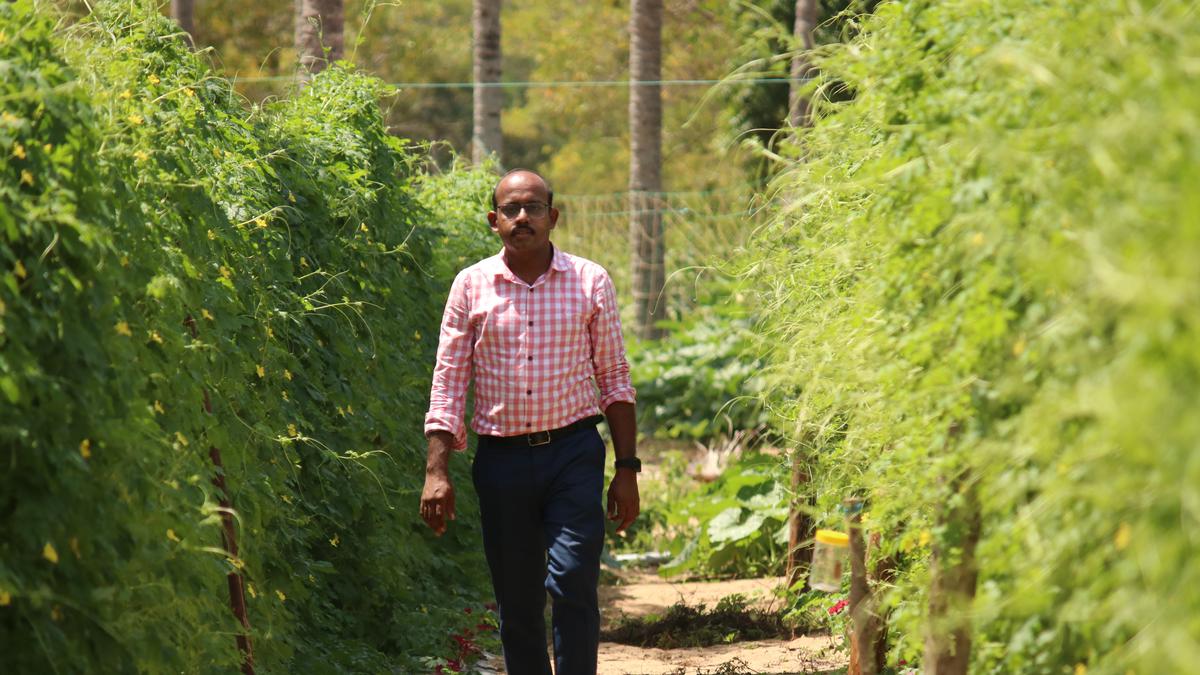Words rush into verse, tumble into rhyme and flow into poems. Ramnath could put pen to paper and come up with verse on any subject. After several years of wordplay, versification and journalling, the Chennai based multi-lingual chartered accountant, released a book of Urdu poems, Bas Yun Hi (Just Like That). It is self published.
Going down memory lane, Ramnath says the book of poems is the fruition of his love affair with Urdu that began in Kolkata, where he grew up. Eighteen poems on diverse themes, written in Devanagari script, showcase the poet’s felicity for words and his ability to capture fleeting emotions, meditative thoughts and memories in evocative verse.
The anthology, which was released in Chennai by Leela Samson, who also wrote an eloquent foreword, features a cover designed by Ramnath’s son, Amrit (a composer and musician) and illustrations by Subhash Bhokre.
Bas Yun Hi, a book of Urdu poetry written by Ramnath.
| Photo Credit:
Special arrangement
Since Kolkata is a cultural hub, Ramnath and his siblings grew up on a steady diet of ghazals and poetry in chaste Urdu. Ramnath says he grew up speaking Bengali although they hail from Palakkad in Kerala. He recalls with a chuckle that Tamil was spoken only at home, that too with his mother. “My first language was Hindi and I learned Hindi literature and poetry. As my family was into music, from morning to evening, we listened to music. My father brought a cassette of Ghulam Ali and that is how I began listening to ghazals,” he reminisces.
He bought an Urdu-Hindi dictionary to understand the meaning of the lyrics better. “And I listened again to all those ghazals. I felt Urdu was the language that best expresses the emotions and moods one experiences in words.”
A music aficionado, Ramnath recalls listening to greats such as Ghulam Ali, Mehdi Hassan and Begum Akhtar, to name a few. “Unlike popular perception, ghazals are not confined to romance. They embrace every human emotion and deep philosophy too,” he adds.

Ramnath
| Photo Credit:
SHYAMAKRISHNAN
As his romance with ghazals deepened, he began delving into the works of the poets who wrote evocative verse. “For instance, ‘Chupke chupke, raat din..’, the ghazal popularised by Ghulam Ali, was written by Hasrat Mohani. I started reading his poems. Similarly, I came across several poets such as Ahmad Faraz (‘Ranjshi hi sahi…’) and Mir Taqi Mir. Ghalib, of course, was already there. Mehdi Hassan’s rendition of Mir Taqi Mir’s ‘Dekho, dil se jaan se utha hai’ is one of my favourites. The meaning is so heart-rending. This ghazal plays as a refrain in Kamal Amrohi’s classic Pakeezah, where it is filmed on Meena Kumari,” explains Ramnath.
He feasted on the wealth of information on the web and began watching mushairas (poetic get-togethers) on YouTube. There, he discovered poets like Munawwar Rana and Rahat Indori.
“Indori was brilliant. He uses a lot of modern imagery that one can easily relate to. Gulzar and Javed Akhtar are two contemporary poets I follow,” he says, adding “I also listen to podcasts. There is one called ‘Urdu Nama’, which I listen to on Spotify. A word is chosen and the presenter talks about it. If there is some popular verse on the same word, that is discussed. Then I started buying books from Rekhta, a popular website for Urdu books. I keep reading Majrooh Sultanpuri’s works.”
An innate talent in music helped him fuse words to create lines that exude myriad emotions. However, caught up as he was in his work and family, the lines he wrote remained with him. “As a child, I used to recite or read out whatever I had written to my sister Usha Ramesh. As I grew older, the subjects became more serious but the habit of writing continued,” he says.
Eventually, he settled in Chennai and married Carnatic musician Bombay Jayashri. Work and familial responsibilities consumed his time. But he continued to “scribble verse and left it at that”.
The budding poet found his readers when Usha was living in Bahrain. She was part of the Bahrain Poetry Group, which chose a theme every month, encouraging members to come up with pieces in prose and verse, some published and some written by them.
That is when the actual writing of the poems in Bas Yun Hi took place, some time around 2015-2020.
Says Usha: “Raju (as his family calls him) would send his verse as audio notes and the listeners, including Urdu-speaking Pakistanis, were bowled over by his verse, diction and use of phrase.”
It was during this time that Ramnath lost his mother. His grief was expressed in a moving poem ‘Ma’. In it, he attempts to comfort his sister by assuring her that though their mother was not physically there, he would be there for his sister.
“Certain experiences have been deeply ingrained in me. I see my poetry-writing as an outlet,” he says, adding “Every poem has been born in the crucible of my life but there is a universal truth in each that all readers can relate to.”
The poet adds that at no time did he ever go back to his verses to edit or rewrite. Before publication, he ran each poem through Vidhu Purkayasta, a friend who is also an author and scholar to check for grammatical errors.
“Amrit and Jayashri have been pillars of support. Jayashri told me to go ahead and publish it,” he says.
And how did the title come about?
“Someone asked me, ‘Why do you write poetry?’ I replied, ‘Bas, yun hi’. ”








